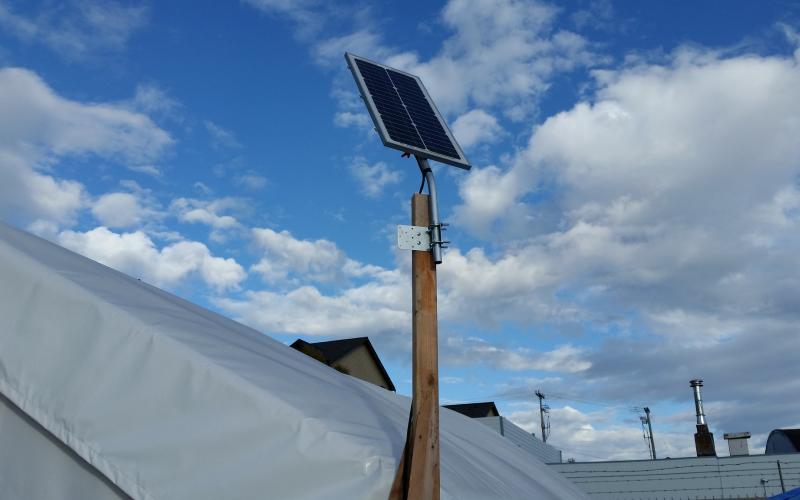
Energy boosted economic growth in many nations after its development. Energy also left many nations in the dust because of its price. Nearly 1.3 billion people do not have electricity according to the “The Guardian.” Most of these people are located in the Sub-Saharan Desert and in rural areas in Asia. But why doesn’t the Sub-Sahara Desert have access to electricity and why haven’t there been any improvements?
How big of a problem is this energy crisis? According to “The Guardian,” only 5% of the sub-Saharan desert has access to electricity. To put this in perspective, the entire region of the Sub-Saharan Desert consumes as much electricity as New York City. This extreme lack of electricity prevents the grow of business. Imagine living without online shopping, searching, and advertising. All of these are key elements of economic growth today in the United States. What would you do without energy consumers such as television, vehicles, air conditioning, heating, cooking, and refrigeration? All of these are considered basic necessities by many people living in the United States.
Which is better for Africa, renewable or nonrenewable energy? Nonrenewable energy is costly on citizens and the environment in the long run. Fossil fuels can also be hard to come by. The most accessible energy is renewable energy and would be ideal for the continent of Africa. Unfortunately, renewable energy has a more expensive down payment than non renewable energy, but saves you in the long run. Wind and solar power are the most common sources of renewable energy and are used in many other nations already. Renewable energy sources can range from personal solar panels to large government owned wind turbines. This makes renewable energy the best way to bring energy to Africa.
Now that you know renewable energy is better for Africa, how does it help? Renewable energy is inexhaustible, has zero carbon emission, improves environmental and public health, and creates jobs making it superior to nonrenewable energy. Improvements in public and environmental health reduces overall healthcare costs. Renewable energy could create thousands of jobs in the Sub-Saharan desert boosting the economy. According to the “Union of Concerned Scientists,” wind energy alone in the United States employs 75,000 workers. Last, renewable energy is limitless and is becoming even cheaper. Now might be the best time for African countries to transition to or start using renewable resources.
What is already being done? According to “All Africa,” the African Development Bank has recently increased its funds towards renewable energy in Africa by 10 percent to 200 million U.S. dollars. The AREF has also raised 100 million U.S. dollars towards renewable energy development in the Sub-Saharan desert. This will significantly help Africa and make the dream of economic energy growth a reality in Africa. SEFA or Sustainable Energy for Africa, also “strives to achieve global access to electricity and safe fuels and to double the share of renewable adoption and energy efficiency improvements worldwide — all by 2030,” according to “Renewable Energy World”. Believe it or not many more things are being done to address this issue. But this does not mean that this issue has all the help it needs. There are many things that can be done with donations through smaller organizations such as: donating portable solar panels and wind turbines, or my personal favorite: solar cookers, or even spreading awareness to the issue.
Many people will tell you that the solution to Africa’s problems is access to energy. I believe this is true. Energy is the driving force behind the world’s economy. According to the IER, “Energy is personal. All of our decisions depend in some way on energy and the price of energy—how we travel, what we eat, what temperature we keep our houses, and which jobs we work. Affordable energy makes our lives better.” If we like it or not, energy affects everything we do. It will either give you a wealth of benefits or if caught behind the game like Africa is, a lot of heartache. Energy is not the sole culprit, but the one that has hurt Africa the most.
"A Primer on Energy and the Economy: Energy's Large Share of the Economy Requires Caution in Determining Policies That Affect It - IER." IER. N.p., 16 Feb. 2010. Web. 08 May 2015.
"African Renewable Energy Fund Secures $100 Million for Sub-Saharan Renewables Development." Renewable Energy World. N.p., 17 Mar. 2014. Web. 08 May 2015.
"Africa: U.S $200 Million Staked for Africa's Renewable Energy." AllAfrica.com. N.p., 06 May 2015. Web. 08 May 2015.
"Benefits of Renewable Energy Use." Union of Concerned Scientists. N.p., n.d. Web. 08 May 2015.
Renewable Energy In South Africa. Digital image. Greener Ideal. Greener Ideal, 13 June 2013. Web. 8 May 2015.
"Who Will Fund the Renewable Solution to the Energy Crisis?" The Guardian. The Guardian, 5 June 2014. Web. 8 May 2015.

